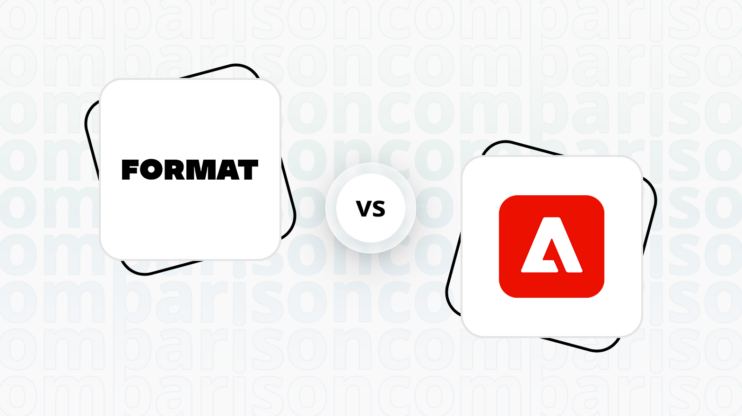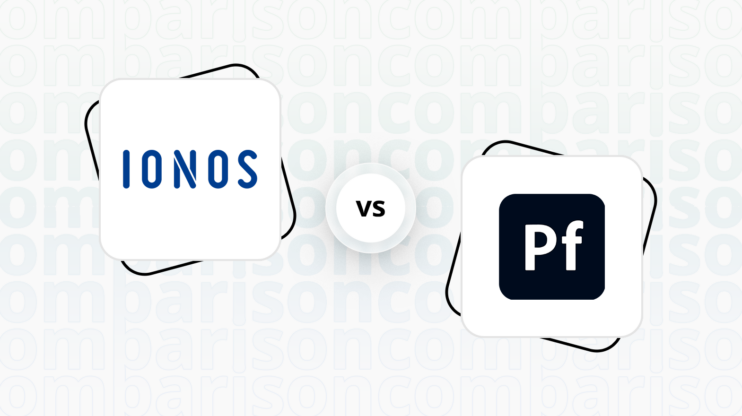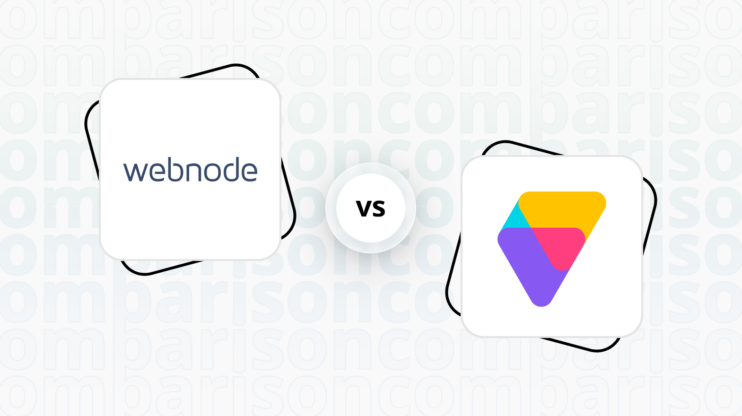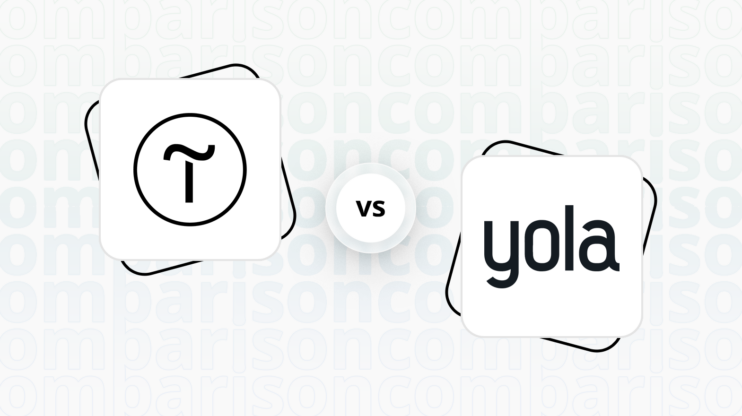Final verdict
Google Sites vs Zoho Sites presents a clear distinction in terms of functionality and target audience.
-
Google Sites (Overall Grade: 5.6/10)
is ideal for users seeking a simple, collaborative platform for creating basic websites. It excels in ease of use and integration with other Google services, making it a suitable choice for team projects, personal portfolios, and small business websites. However, it lacks advanced design functionalities and ecommerce features, which may limit its appeal for more complex website needs. -
Zoho Sites (Overall Grade: 7.6/10)
offers a more comprehensive set of features, including a wide array of customizable templates, advanced design options, and robust ecommerce capabilities. It is well-suited for businesses and individuals looking for a versatile website builder that can handle various purposes, from blogging to online stores. Zoho Sites also benefits from seamless integration with other Zoho applications, providing a holistic solution for website creation and management.

|

|
|
|---|---|---|
|
Design functionalities & templates |
4.9 |
7.4 |
|
Ease of use |
8.3 |
7.0 |
|
Ecommerce |
1.8 |
7.4 |
|
Website editors |
7.0 |
7.5 |
|
Product testing options |
6.9 |
8.8 |
|
Price |
8.1 |
8.6 |
|
Hosting quality |
8.2 |
8.0 |
|
Website speed optimization |
3.3 |
7.1 |
|
Plugins/extensions and integrations |
6.4 |
7.3 |
|
Marketing features |
2.6 |
7.6 |
|
Customer support |
7.2 |
8.3 |
|
Website security |
9.3 |
8.1 |
|
AI capabilities |
0 |
7.5 |
|
User management |
7.8 |
7.3 |
Best for ecommerce
 1.8
1.8
 7.4
7.4
Verdict
: Google Sites is not ideal for ecommerce due to its lack of built-in features, while Zoho Sites offers a more robust solution with its integrated ecommerce tools.
-
Google Sites
: Google Sites is primarily designed for simple website creation and collaboration, lacking native ecommerce functionalities. Users must rely on third-party tools and widgets to add ecommerce features, which can be cumbersome and limited in scope. This makes Google Sites less suitable for businesses looking to establish a comprehensive online store. -
Zoho Sites
: Zoho Sites, in conjunction with Zoho Commerce, provides a more complete ecommerce solution. It offers features like product and inventory management, order processing, and payment gateway integration. These capabilities make Zoho Sites a better choice for businesses aiming to create and manage an online store efficiently.
Best for informational & business websites
 7.2
7.2
 7.9
7.9
Verdict
: Zoho Sites edges out Google Sites for informational and business websites, thanks to its extensive design functionalities and better performance optimization.
-
Google Sites
: Google Sites is a straightforward tool for creating websites without coding. It integrates seamlessly with other Google services, making it ideal for team projects and small business websites. However, its design customization options are limited compared to Zoho Sites. -
Zoho Sites
: Zoho Sites offers a more comprehensive set of features for creating professional and responsive websites. With a wide array of customizable templates and better performance optimization, Zoho Sites is well-suited for businesses looking to create visually appealing and functional websites. When comparing Google Sites vs Zoho Sites, Zoho Sites provides more creative control and advanced functionalities.
Detailed comparison
Design functionalities & templates
Design FunctionalitiesRepresents how well each platform allows for creative design and customization of websites.Score Components:
- Template Variety (30%): Range and quality of design templates.
- Customization (30%): Flexibility and options for design alterations.
- User Interface (20%): Ease and intuitiveness of the design process.
- Responsiveness (10%): Adaptability to different devices and screen sizes.
- Innovation (10%): Unique design features and tools.
 4.9
4.9
 7.4
7.4
🏆
Winner: Zoho Sites.
If you’re looking for a platform that offers more creative control, a wider array of design features, and a larger number of templates, Zoho Sites is the preferred choice.
Google Sites offers a limited number of templates suitable for various purposes, from personal blogs to business websites. These templates are designed for user engagement, simplicity, and functionality, allowing for customization to meet specific needs. However, compared to other website builders, Google Sites might offer less variety in templates and design customization options.
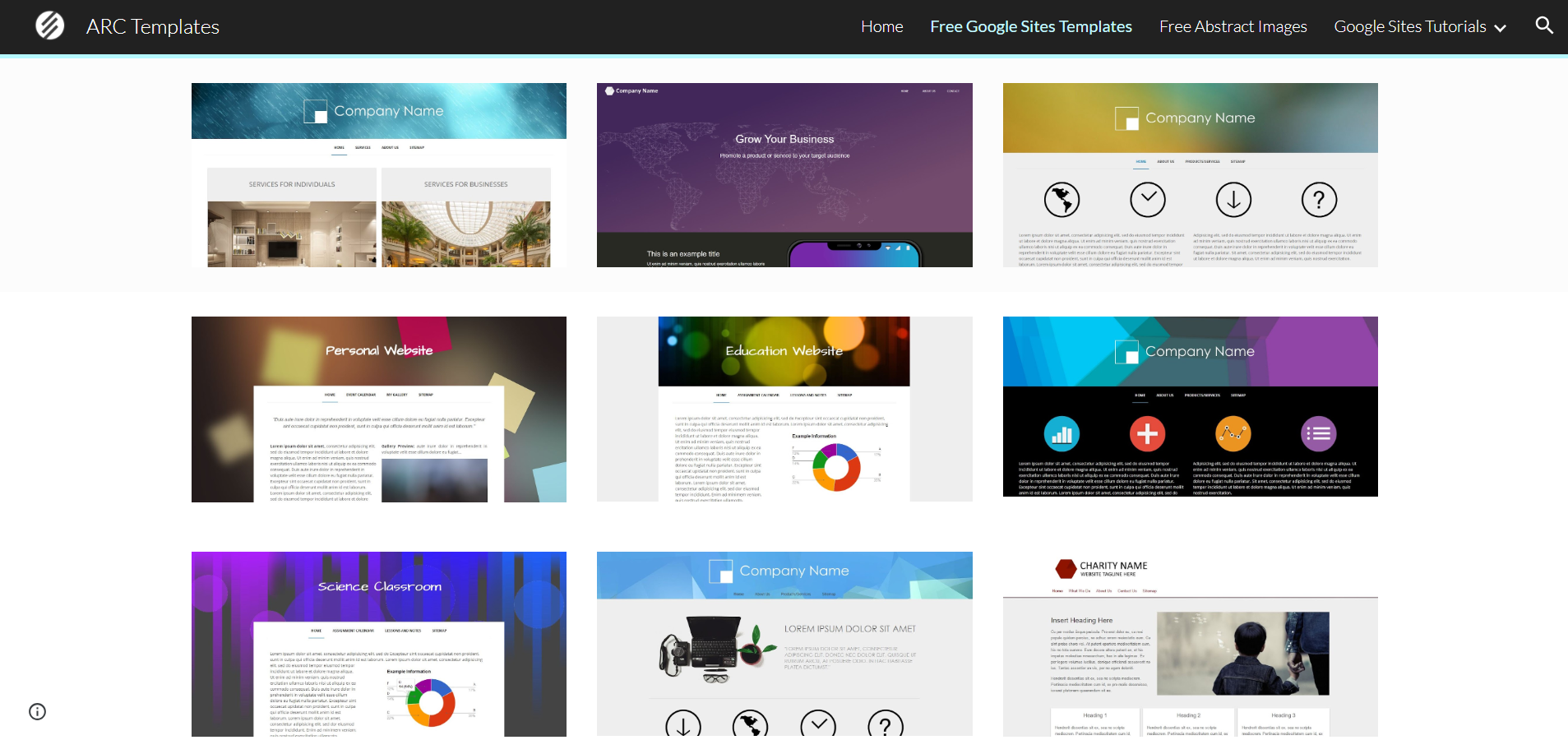
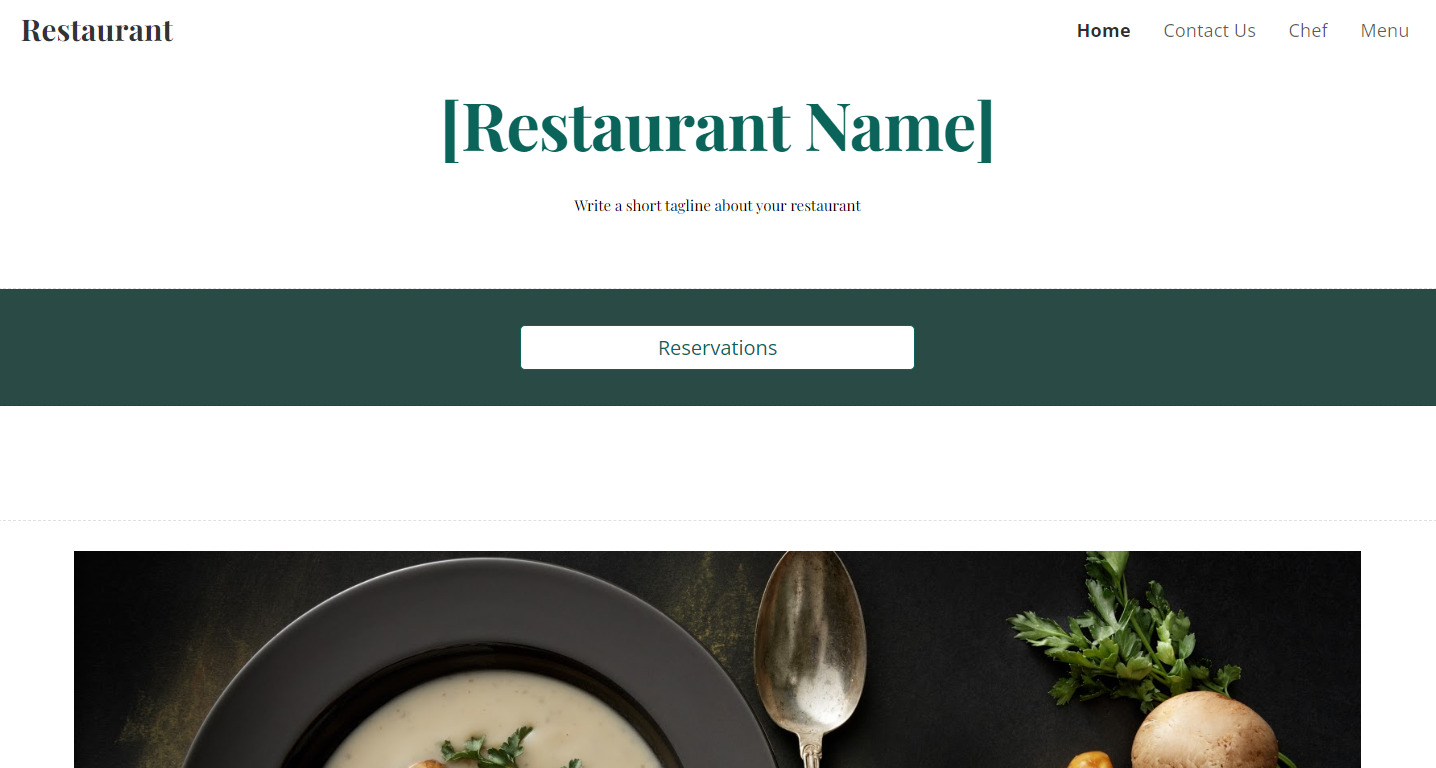
On the other hand, Zoho Sites offers a diverse collection of over 150 templates, thoughtfully categorized into industries like Restaurants, Architecture, Health, and more. Each template provides a pre-designed layout with responsive design for various screen sizes. Customization options include visual elements such as colors, fonts, and images, as well as the ability to modify layouts and content using the visual editor.
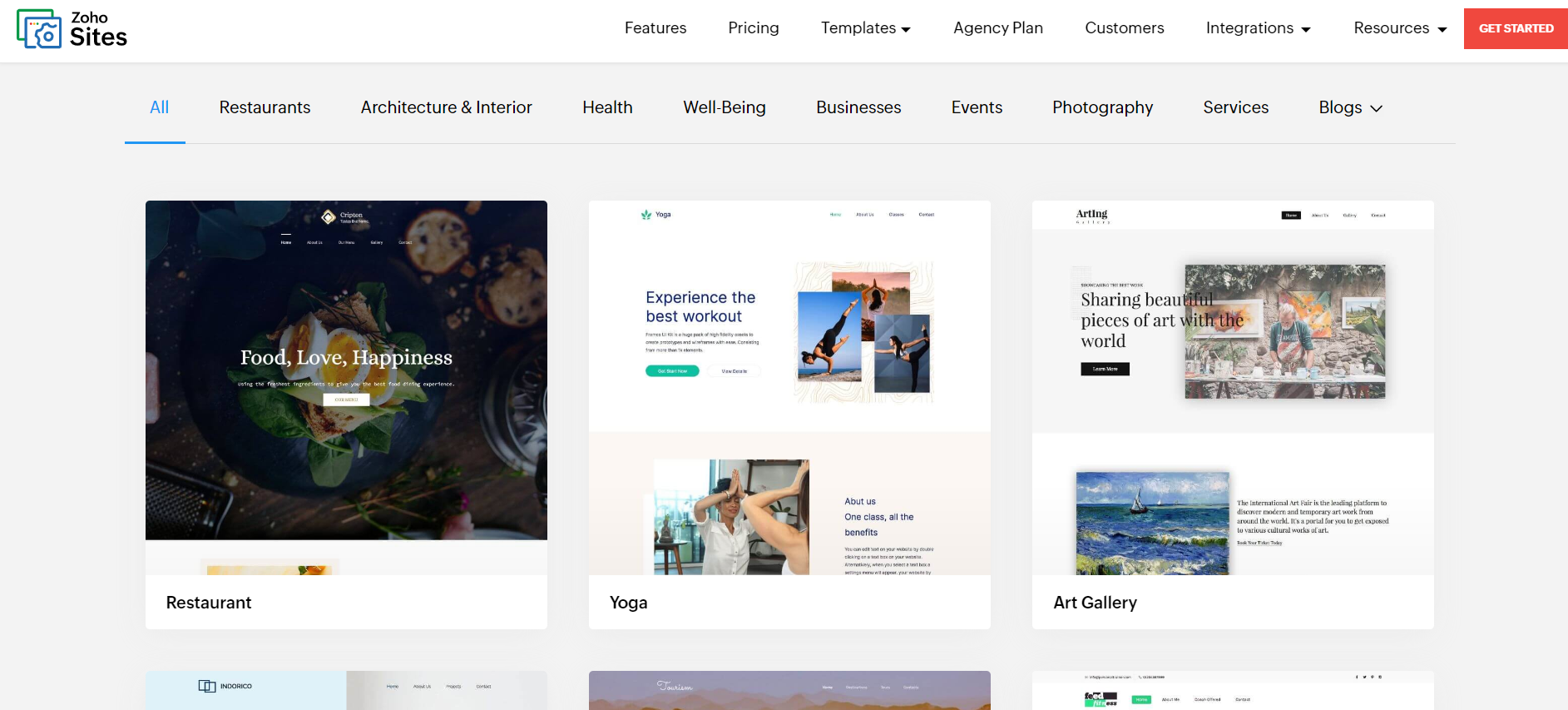

Get a head start on website creation with AI
Create a custom website tailored to your business needs 10X faster with 10Web AI Website Builder!
Ease of use
Ease of useReflects the platform’s overall user-friendliness.Score
Components:
- Learning curve (40%): Quickness and ease of getting started.
- Interface design (30%): Simplicity and intuitiveness of layout.
- User guidance (20%): Quality of tutorials and support.
- Flexibility (10%): Adaptability to various user skills.
 8.3
8.3
 7.0
7.0
🏆 Winner: Google Sites
. With a score of 8.3, Google Sites offers a user-friendly interface that allows individuals with no coding experience to create and publish websites easily. Zoho Sites, scoring 7.0, offers a positive user experience but may present challenges for users requiring advanced features and seamless data integration.
Learning Resources
🏆 Winner: Tie
. Both Google Sites and Zoho Sites offer a wide array of high-quality learning resources. Google Sites provides practical guides and comprehensive digital skill development programs, while Zoho Sites offers a detailed beginner’s guide, comprehensive user guides, video tutorials, blogs, FAQs, community forums, and webinars.
For ecommerce
EcommerceMeasures the platform’s effectiveness in supporting online business activities.Score Components:
- Ecommerce themes and templates (20%): Variety and design of templates.
- Product management (25%): Ease of managing and organizing products.
- Payment options (25%): Variety and convenience of payment methods.
- Ecommerce features (20%): Features for managing an ecommerce store.
- Integration (10%): Compatibility with external e-commerce tools and services.
 1.8
1.8
 7.4
7.4
Google Sites and Zoho Sites both lack built-in ecommerce features. However, they offer different ways to incorporate ecommerce functionality into their websites. Google Sites relies on third-party tools and widgets, while Zoho Sites integrates with Zoho Commerce, a dedicated platform for online store management.

|

|
|
|---|---|---|
|
Ecommerce themes and templates |
0.0 |
6.5 |
|
Product page customization |
0.0 |
7.0 |
|
Payment processing and commissions |
1.0 |
6.8 |
|
POS capabilities |
0.0 |
5.5 |
|
Payment gateways |
2.0 |
7.2 |
|
Product numbers |
0.0 |
6.0 |
|
Additional ecommerce features |
0.5 |
7.3 |
Google Sites ecommerce features:
Google Sites does not have built-in ecommerce features. However, you can integrate ecommerce functionalities into a Google Sites website by embedding third-party tools or widgets, linking to an external ecommerce platform, or using buttons that link to payment processors. For instance, you could use Google Forms for order forms and integrate PayPal or another payment service for transactions. To have a full-fledged ecommerce platform with Google Sites, you’d need to rely on these external integrations or services.
Zoho Sites ecommerce features:
- Product and Inventory management
- Order management
- Payment Processing
- Marketing and Promotions
- SEO and Analytics
- Security
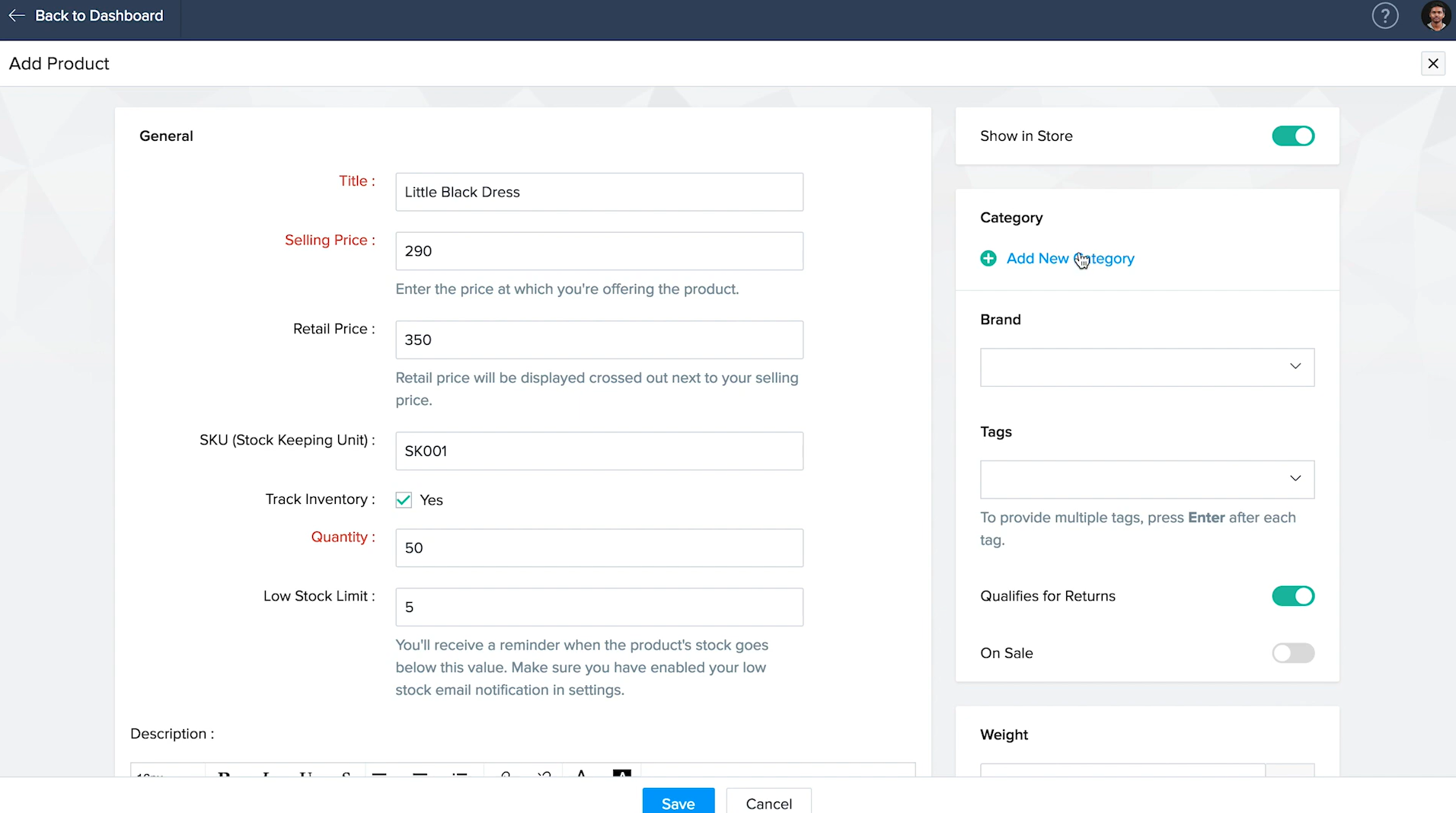
Ecommerce themes & templates
Google Sites does not offer ecommerce templates. On the other hand, Zoho Sites provides a range of ecommerce website templates and themes designed to cater to various industries and business needs. These templates are customizable, allowing businesses to tailor their online stores to their brand and product offerings. Zoho Commerce, in particular, provides beautiful and highly customizable ecommerce store themes, aiming to enhance the online shopping experience.
Product page customization
Google Sites lacks any product page customization features, as the products can be listed with embedding third-party platforms, all the customization can be done within the mentioned platforms. In contrast, Zoho offers extensive product page customization options, allowing users to tailor the display of their products. This includes features like image galleries, sliders, and video integration, enabling businesses to present their products in a visually appealing manner. Additionally, Zoho facilitates the configuration of product variants like size and color options, as well as efficient inventory management directly from the product pages.
Payment processing
You can integrate payment gateways into Google Sites using external tools or links, not through native features. This can be done by embedding HTML code for payment buttons from services like PayPal, Square, or Stripe, or by linking to an external checkout page. Third-party ecommerce widgets also offer a way to add payment functionalities. However, Google Sites doesn’t offer the comprehensive ecommerce capabilities that dedicated platforms provide.
On the other hand, Zoho Sites, in conjunction with Zoho Commerce, offers robust payment processing capabilities and supports integration with multiple payment gateways like PayPal, Stripe, and Square, facilitating secure online transactions. While direct POS system integration and commission management might require leveraging additional Zoho tools or custom solutions, the Zoho ecosystem provides a comprehensive suite for businesses to manage both online and in-store sales efficiently. This integration ensures flexibility and security for businesses aiming to provide a seamless shopping experience across multiple channels.
Website Editors
Website EditorsEvaluates the platforms’ website building and editing capabilities.Score Components:
- Customization tools (40%): Range and power of editing features.
- Editor usability (30%): User experience within the editor.
- Design flexibility (20%): Freedom in layout and design changes.
- Update and maintenance ease (10%): Simplicity of updating and maintaining the site.
 7.0
7.0
 7.5
7.5
🏆
Winner: Zoho Sites
. Zoho Sites, with a score of 7.5, is a user-friendly website builder that enables both businesses and individuals to create professional, responsive websites without coding skills, through its drag-and-drop interface. Integrated within the Zoho ecosystem, it offers customizable templates, SEO tools, social media integration, and ecommerce features, along with connectivity to other Zoho applications for enhanced functionality.
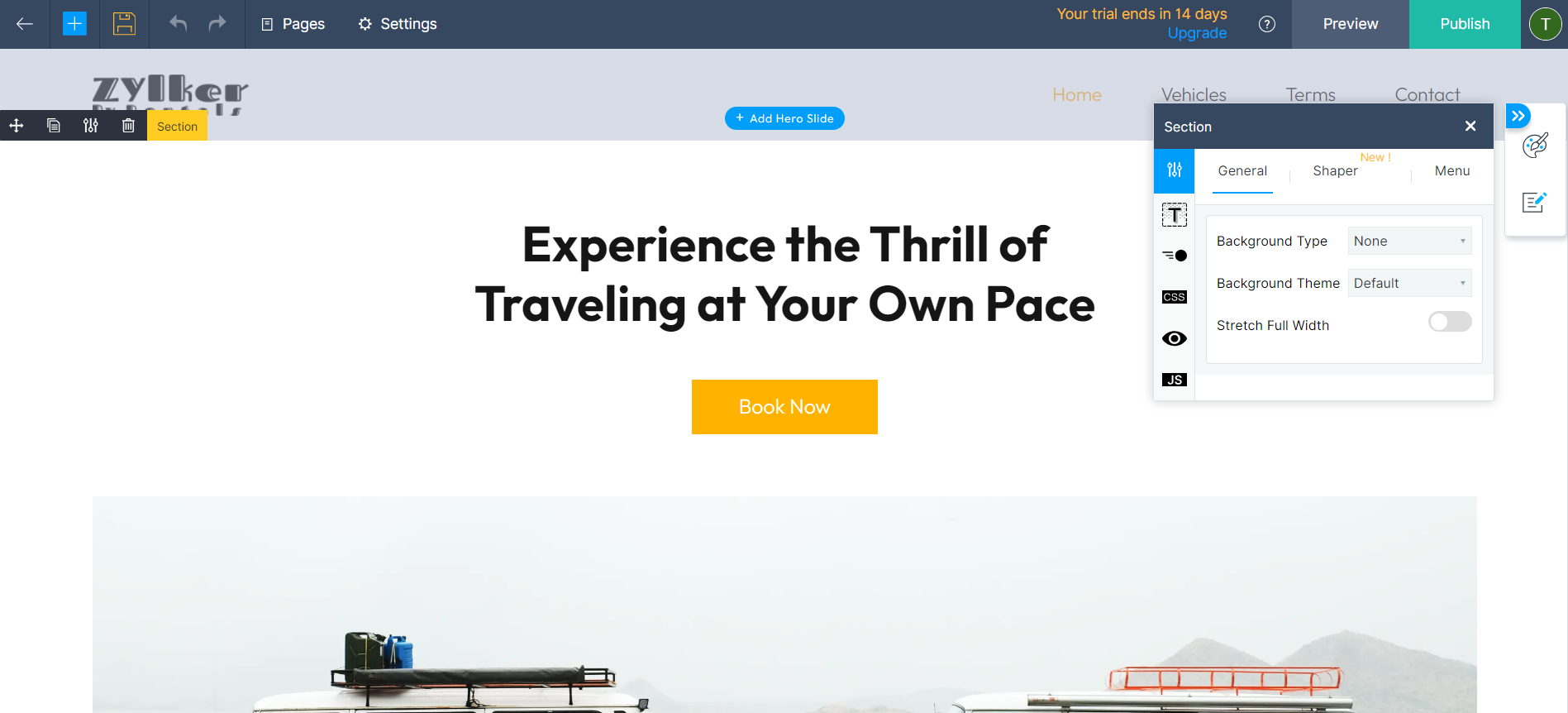
Google Sites, scoring 7.0, offers a user-friendly website builder editor that allows users to create and design websites without needing coding knowledge. With its drag-and-drop interface, users can easily add, customize, and arrange elements such as text, images, and videos on their web pages. It also provides a variety of templates and design options to help users get started quickly and ensure their site looks professional. Additionally, Google Sites integrates seamlessly with other Google services, enabling the incorporation of Google Docs, Sheets, Slides, and Maps directly into the website.
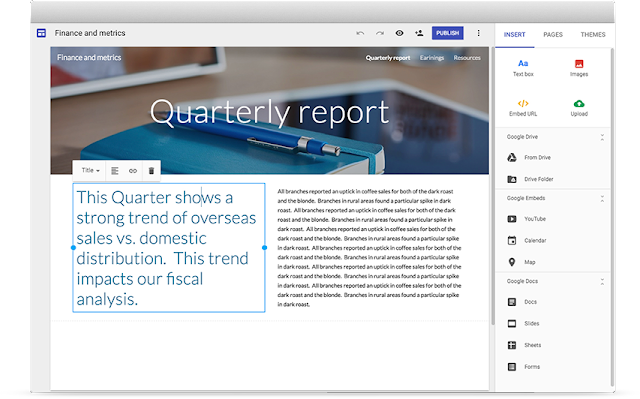
Mobile editor/app
 0
0
 5.5
5.5
🏆
Winner: Zoho Sites
. Both Google Sites and Zoho Sites do not offer a dedicated mobile editor app. However, Zoho Sites allows users to edit the visual aspects of the mobile version of their website, such as font size, color, background, and shadow, but they cannot change the content through the mobile interface. On the other hand, Google Sites does not provide any mobile editing capabilities.
Zoho Sites, therefore, is the winner in this category due to its limited yet present mobile editing features.
Product testing options
Product Testing OptionsAssesses the options for trying out platform features before commitment.Score Components:
- Trial quality (40%): Extent and usefulness of the trial or free version.
- Feature accessibility (30%): How many features are available to test.
- Trial duration (20%): Length of the trial period.
- Ease of transition (10%): Smoothness of moving from trial to paid plans.
 6.9
6.9
 8.8
8.8
Overall Result
:
Zoho Sites Wins
. Zoho Sites scores 8.8, outperforming Google Sites which scores 6.9. Zoho Sites offers a slightly longer trial period and allows testing of all features of each plan during the free trial. It also provides a money-back guarantee for both monthly and annual subscriptions, which Google Sites does not offer.

|

|
|
|---|---|---|
|
Free Plan |
Yes | Yes |
|
Trial Duration |
14 days |
15 days |
|
Testing Premium Features |
Some features during free trial |
All features during free trial |
|
Money Back Guarantee |
No |
Yes (30 days for monthly, 45 for annual) |
Price
PriceLooks at the cost-effectiveness and value for money of each platform.Score Components:
- Plan value (40%): What each pricing tier offers.
- Transparency and clarity (30%): Clearness of pricing structures.
- Flexibility of plans (20%): Range of options to suit different budgets.
- Hidden costs (10%): Additional expenses not included in the plan.
 8.1
8.1
 8.6
8.6
Google Sites and Zoho Sites both offer competitive pricing plans, but Zoho Sites provides more flexibility with its plans, especially for agencies managing multiple sites.

|

|
|
|---|---|---|
|
$0-$10 |
Business Starter ($7.20/month): This plan includes basic features suitable for individuals or small businesses, offering professional email through Gmail, 30GB of storage per user, and video meetings for up to 100 participants. It allows to manage 1 website and there is no limitation on number of pages. Value for price: 6.0 |
Starter ($8.00/month): Offers basic features suitable for small websites, including 5 pages, 500MB storage, 10GB bandwidth/month, SSL hosting, domain connection, ad-free experience, and more. Ideal for personal blogs or small business websites. Value for price: 6.5 |
|
$10-$20 |
Business Standard ($14.40/month): Suitable for growing businesses, this plan provides 2 TB of storage per user, video meeting capacity for up to 150 participants with recording features, and access to smart booking pages and shared drives. It allows to manage 1 website and there is no limitation on number of pages. Value for price: 7.5 |
No offering at this amount. |
|
$20-$30 |
Business Plus ($21.60/month): Designed for larger businesses needing more robust capabilities, offering 5 TB of storage per user, advanced security options, and video meetings for up to 500 participants. It allows to manage 1 website and there is no limitation on number of pages. Value for price: 8.5 |
Pro ($23.00/month): Upgrades significantly on the Starter plan, offering 50 pages, 100GB storage, unmetered bandwidth, 50 forms, and advanced features like social share button, audio player, comment box, scheduled blog post, and dynamic content. Best suited for professional sites that require more resources and functionalities. Value for price: 8.0 |
|
$30+ |
No offering at this amount. |
Agency ($32.00/month): Tailored for agencies managing multiple sites, providing a bundle plan that offers significant savings and flexibility. Includes all Starter features with the option to add Pro features as needed. Value for Price: 9.0 |
location. As a result in rare cases the prices displayed here can differ from the ones you see on their
websites.
Hosting quality
Hosting
qualityExamines the reliability and performance of the hosting solutions.Score Components:
- Uptime (40%): Consistency and reliability of website availability.
- Speed (30%): Loading times and performance.
- Bandwidth and storage (20%): Sufficiency of resources provided.
- Data centers (10%): Quality and distribution of hosting infrastructure.
 8.2
8.2
 8.0
8.0
🏆
Winner: Google Sites
Google Sites and Zoho Sites both offer reliable hosting services with an uptime of 99.9% and an uptime guarantee. However, Google Sites edges out Zoho Sites with its cloud-based managed hosting and a larger number of data centers globally, ensuring better performance and reliability.

|

|
|
|---|---|---|
|
Do they offer hosting? |
Yes, basic storage with 100MB free per site, can be increased by upgrading to Google Workspace |
Yes, efficient hosting with a focus on speed, storage and bandwidth vary by plan |
|
Data Centers: |
21 globally: 2 in Asia, 5 in Europe, 13 in US and 1 in South America |
12 Globally: Canada(Montreal and Toronto), US(Quincy and Dallas), India(Mumbai and Chennai), Australia(Sydney and Melbourne), China(Beijing and Shanghai), Japan(Tokyo and Osaka) |
|
Type of hosting: |
Cloud based managed hosting |
Managed Hosting |
|
Uptime: |
99.9% |
99.9% |
|
Uptime Guarantee: |
Yes, 99.9% |
Yes, 99.9% |
Website Speed Optimization
Website Speed OptimizationEvaluates optimization of website loading timesScore Components:
- PageSpeed Score (30%): Google’s score indicating performance optimization.
- Loading Time (30%): The average time until a website is fully interactive.
- Mobile Optimization (15%): Optimization effectiveness for mobile devices.
- Resource Optimization (15%): Optimizing images, scripts, and other heavy resources.
- CDN Usage (10%): Use of CDN to enhance speed across geolocations.
 3.3
3.3
 7.1
7.1
🏆 Winner: Zoho Sites
Both Google Sites and Zoho Sites prioritize website performance and page speed, but Zoho Sites outperforms Google Sites in this area.

|

|
|
|---|---|---|
|
Focus |
Automated Optimization, CDN, Mobile Optimization, Browser Caching, Code Minification, Use of AMP |
Regularly testing and implementing updates, Optimized code and libraries, Cache balancing |
|
Performance Tools |
Google Lighthouse, PageSpeed Insights |
Google PageSpeed Insights Integration |
|
Key Strategies |
Automated Optimization, CDN, Mobile Optimization, Browser Caching, Code Minification, Use of AMP |
Regularly testing and implementing updates, Optimized code and libraries, Cache balancing |
|
Load Times |
Google does not disclose statistics about website Page Speed scores, or load times |
Below 2-5 seconds average |
|
Page Speed Scores Range |
Google does not disclose statistics about website Page Speed scores, or load times |
70-80/100 average |
|
Core Web Vitals Improvement |
Emphasis on LCP, FID, CLS improvements |
Implementing various performance optimization techniques |
Google Sites focuses on automated optimization, CDN, mobile optimization, browser caching, code minification, and the use of AMP for speed optimization. However, Google does not disclose statistics about website Page Speed scores or load times. It emphasizes on LCP, FID, CLS improvements for Core Web Vital improvements.
On the other hand, Zoho Sites focuses on regularly testing and implementing updates, optimized code and libraries, and cache balancing for speed optimization. It has an average load time of below 2-5 seconds and an average Page Speed score of 70-80/100. Zoho Sites also implements various performance optimization techniques for Core Web Vital improvements.
Get a head start on website creation with AI
Create a custom website tailored to your business needs 10X faster with 10Web AI Website Builder!
Plugins and integrations
Plugins and integrationsMeasures the range and effectiveness of additional plugins and integrations.Score Components:
- Variety of options (40%): Range of available add-ons.
- Integration smoothness (30%): Ease of integrating plugins into the site.
- Quality of plugins (20%): Functionality and reliability of the options.
- Custom integration capabilities (10%): Support for custom or third-party integrations.
 6.4
6.4
 7.3
7.3
🏆 Winner: Zoho Sites.
Zoho Sites scores 7.3, outperforming Google Sites which scores 6.4. Zoho Sites offers a diverse range of plugins and extensions spanning various categories like marketing, design, social media, SEO, payments, and more. It integrates many extensions into their paid plans, providing users with access to more features as they upgrade. Google Sites, on the other hand, offers a wide array of plugins and extensions to enhance website functionality, catering to various needs such as social media integration, e-commerce, chats, forms, video, audio, and more. However, Zoho Sites’ approach of integrating with Zoho’s suite of applications and third-party services, rather than traditional plugins, allows for a versatile and customized website building experience, giving it the upper hand.

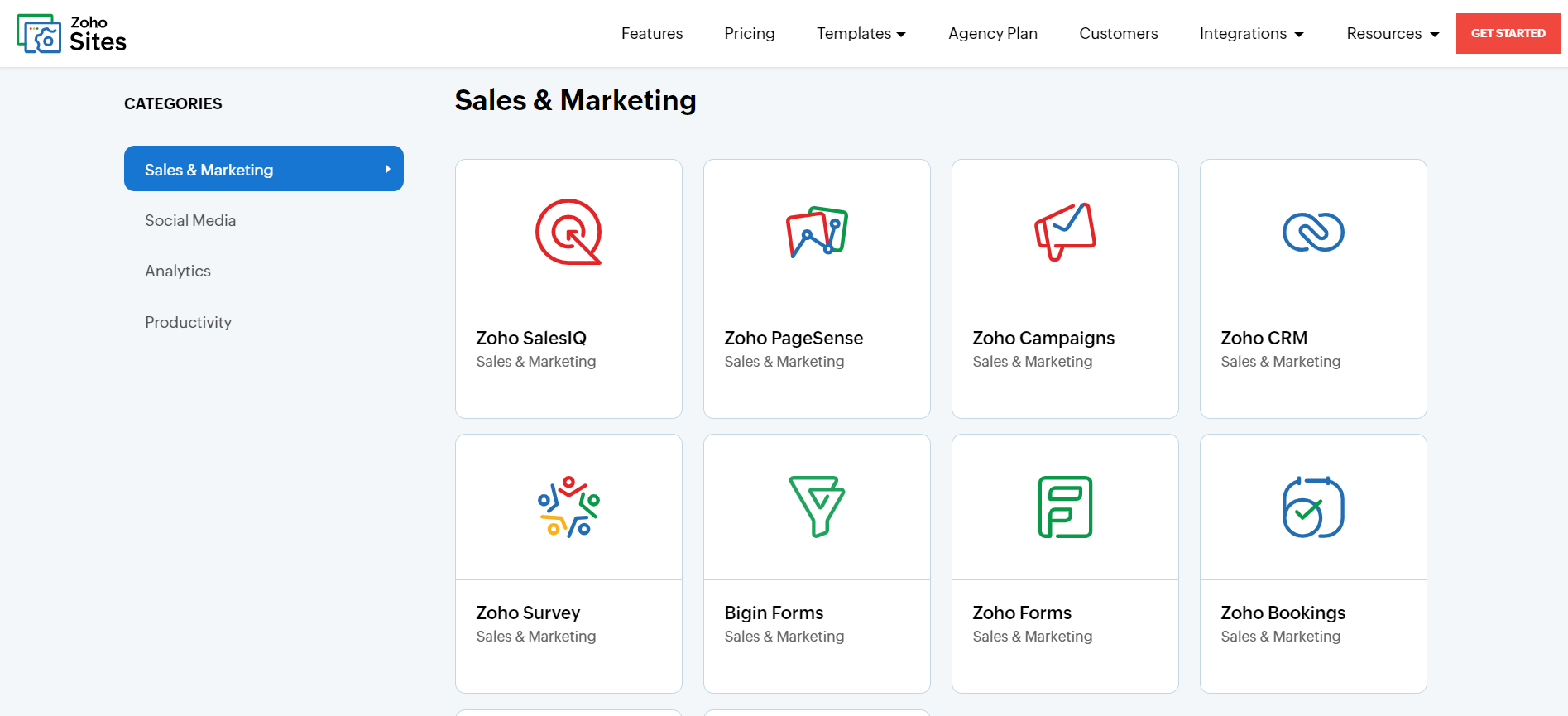
Marketing Features
Design FunctionalitiesRepresents how well each platform allows for creative design and customization of websites.Score Components:
- Template Variety (30%): Range and quality of design templates.
- Customization (30%): Flexibility and options for design alterations.
- User Interface (20%): Ease and intuitiveness of the design process.
- Responsiveness (10%): Adaptability to different devices and screen sizes.
- Innovation (10%): Unique design features and tools.
 2.6
2.6
 7.6
7.6
🏆
Overall Winner: Zoho Sites
. Zoho Sites offers a more comprehensive set of marketing features, including email marketing, blogging, and advanced social media integration. Google Sites, while offering basic SEO and analytics features, lacks in areas like email marketing and blogging.

|

|
|
|---|---|---|
|
SEO Tools |
Basic SEO settings | Advanced SEO features |
|
Email Marketing |
No | Yes, through integration with Zoho Campaigns |
|
Blogging |
No | Yes |
|
Social Media Integration |
Basic, manual integration | Advanced integration with platforms like Twitter and Facebook |
|
Analytics and Reporting |
Google Analytics integration | Traffic analytics and Google Analytics integration |
|
Ads and Promotions |
No | Integrated with Zoho Marketing Automation |
Customer Support
Customer supportEvaluates the quality and availability of support options.Score Components:
- Response time (40%): Speed of support responses.
- Support quality (30%): Effectiveness and helpfulness of the support.
- Availability (20%): Range of support channels (phone, chat, email).
- Resource richness (10%): Quality of self-help and educational materials.
 7.2
7.2
 8.3
8.3
🏆 Winner: Zoho Sites
. Comparing Google Sites vs Zoho Sites, Zoho Sites takes the lead in this category with a higher customer support score of 8.3. Zoho Sites offers 24/7 support through live chat, email, and phone, ensuring that users can get assistance whenever they need it. Additionally, Zoho Sites provides a comprehensive knowledge base and community forum, making it easier for users to find answers to common questions and interact with other users.
Google Sites, on the other hand, offers customer support primarily through self-service resources like a Help Center and community forums. Direct support, including phone, email, and live chat, is available to Google Workspace customers, with the level of support varying by subscription tier. While Google Sites provides 24/7 support for critical issues to eligible customers, free users have access only to self-help resources, which may not be as comprehensive as the support offered by Zoho Sites.
Security
SecurityLooks at the platforms’ security measures and data protection.Score Components:
- Data protection (40%): Safeguards for user and customer data.
- SSL and encryption (30%): Implementation of secure connections.
- Compliance (20%): Adherence to industry security standards.
- Regular updates (10%): Frequency of security updates and patches.
 9.3
9.3
 8.1
8.1
🏆
Winner: Google Sites
. Google Sites, with a security score of 9.3, offers robust security measures including SSL encryption, two-factor authentication, and automatic malware scanning. It also benefits from Google’s regular security updates and compliance with international data protection standards. Google Workspace ensures private data storage and protection through data encryption in transit and at rest, strict access controls, and adherence to international data protection regulations like GDPR.
Zoho Sites, with a security score of 8.1, also provides a secure environment for website creation and management. It uses SSL encryption to protect data transmission and offers two-factor authentication for added security. However, it does not match the comprehensive security measures provided by Google Sites.
AI Capabilities
AI capabilitiesMeasures the effectiveness of AI-driven features and tools.Score Components:
- Automation efficiency (40%): Impact of AI on streamlining processes.
- Personalization (30%): AI-driven customization for users or customers.
- AI-Assisted design (20%): Role of AI in website design and functionality.
- Data analysis (10%): Use of AI in interpreting user data and analytics.
 0
0
 7.5
7.5

|

|
|
|---|---|---|
|
AI Builder |
|
No |
|
AI Ecommerce features |
|
Yes |
|
AI content generation |
|
Yes |
|
Additional AI features |
|
Yes |
🏆 Winner: Zoho Sites
. Zoho Sites, with a score of 7.5, leverages AI for ecommerce features and content generation. It also has an AI assistant named Zia that provides sales predictions, workflow automation, and customer service enhancements. On the other hand, Google Sites does not have any AI capabilities.
User Management
User ManagementAssesses the platforms’ capabilities in managing user roles, permissions, and accessibility.Score Components:
- Role Customization (40%): Flexibility in creating and defining user roles and
permissions. - Ease of Management (30%): User interface and tools for managing users.
- Access Control (20%): Effectiveness of access control measures for different user
levels. - Scalability (10%): Ability to manage a growing number of users efficiently.
 7.8
7.8
 7.3
7.3
🏆 Winner: Google Sites
. Both Google Sites and Zoho Sites allow multiple users to collaborate on a website, but they differ in the number of users allowed and the roles and access levels they provide.
- Google Sites allows multiple users to collaborate with different roles, including Owners, who have full control, and Editors, who can modify content but not site settings. There’s no strict limit on the number of users who can edit a site, allowing flexibility in management and development. Viewers can only see the site, with no editing permissions. This structure supports collaborative website building with varied levels of access and control for different users.
- The number of users who can edit a Zoho Sites website and their access levels depend on the chosen plan. The Free Plan allows only the owner to edit, while paid plans like Pro, Business, and Enterprise offer access for up to 10, 25, and 50 users respectively. Zoho Sites provides four access levels: Admin, with full editing rights and user management; Contributor, who can edit content and create pages but not manage collaborators; and Author, limited to editing text content without access to settings or user management.
Unfortunately, there are no user roles and access levels tables available for both Google Sites and Zoho Sites.
Additional Features

|

|
|
|---|---|---|
|
SSL Certificate |
|
|
|
Custom Domain |
|
|
|
Free Custom Domain Included |
|
|
|
International Domains |
|
|
|
Mobile Responsive |
|
|
|
Page Speed |
|
|
|
Website Builder Mobile App |
|
|
|
Convert a Website To An App |
|
|
|
Website Analytics |
|
|
|
Multilingual Sites |
|
|
|
Multiple Users |
|
|
User Feedback
Users consistently praise Google Workspace, particularly Google Sites, for its seamless integration, ease of use, and collaborative features, making it a go-to solution for various professional and educational needs. The platform’s simplicity and user-friendly interface are lauded, enabling effortless website creation and sharing of information within organizations. While some users desire more customization options and additional features, overall, Google Workspace remains highly valued for its versatility and streamlined workflow facilitation.
Zoho Sites receives mixed reviews, with users praising its user-friendly interface, extensive template library, and seamless integration with other Zoho products, which simplifies website development and management for small businesses. However, some users express dissatisfaction with its limited design flexibility and the inability to create custom features. Overall, Zoho Sites addresses the need for cost-effective website solutions, particularly for those without coding knowledge, offering a one-stop-shop for building and managing websites with varying degrees of customization and integration with other business tools.
The making of this blog
We followed a clear, step-by-step process to write and research this article.
FAQ
Which platform is better for beginners, Google Sites or Zoho Sites?
Can I use both Google Sites and Zoho Sites for ecommerce?
How do Google Sites and Zoho Sites differ in terms of customization and design flexibility?
What are the major differences in pricing and value between Google Sites and Zoho Sites?
Which platform offers better hosting quality, Google Sites or Zoho Sites?
How do Google Sites and Zoho Sites compare in terms of website speed optimization?
Which platform has better plugins and integrations, Google Sites or Zoho Sites?
Which platform provides better customer support, Google Sites or Zoho Sites?










